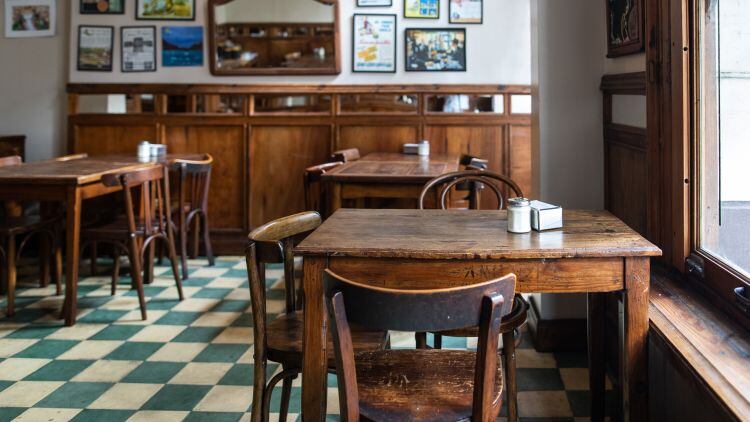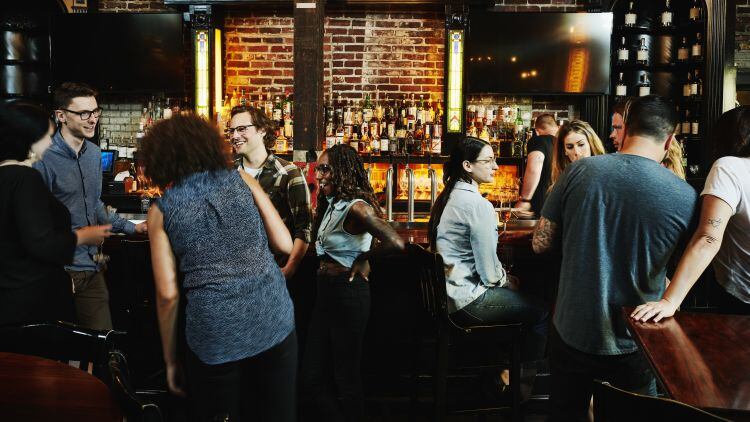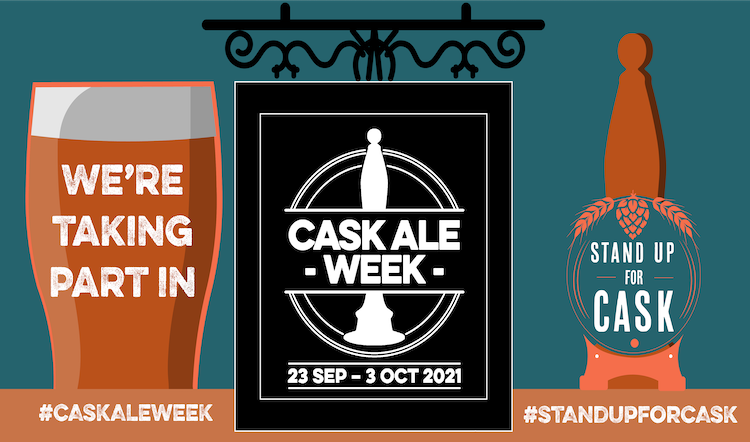Berry, who is chef-patron of the Swan, in Bampton, Devon, voiced his concerns as a campaign to highlight the issue of no-shows has found people not turning up for bookings are costing the sector £17.6m each year.
The campaign, which is called #ShowUpForHospitality, is backed by industry heavyweights including UKHospitality, CGA, Zonal, Bums on Seats and Wireless Social.
Berry says: “We are taking deposits for certain levels of bookings. If I get a table of 10 to 12, I will charge a deposit because if they don’t turn up that’s a large percentage of our business gone.
“By charging £10 per person, it puts them off not turning up. If you miss a dentist’s appointment they will charge you – however, I fear people in the industry will get bad reviews from customers if they keep deposits.
“Some people book one place and go to another. Vegetarians are good at that because they will book two and not tell one place they are not coming.
“I took a large booking for 17 today so I had to take a deposit and tell them four or five days’ notice is required if you are not coming. We usually have 48 to 50 covers so if a group that size doesn’t turn up, it’s a big loss for us.”
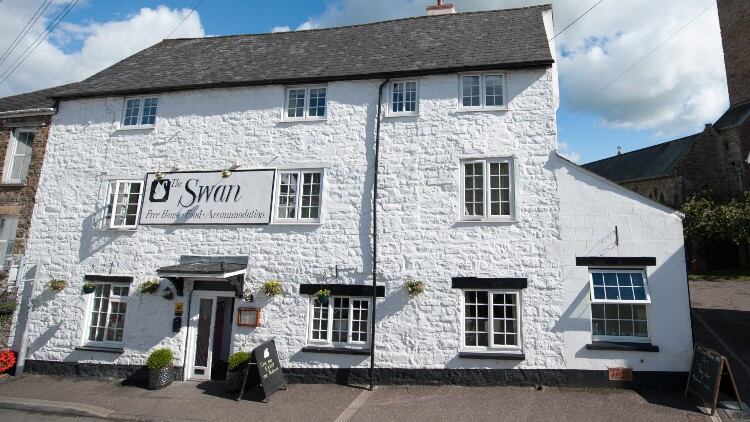
Conversely, a snap poll taken by The Morning Advertiser shows 38% of the 50 respondents did not take deposits for bookings and had no plans to do so in the future, with one in five (20%) saying they were considering taking deposits in the future.
Of those who already take bookings, almost a quarter (24%) of respondents say they take a deposit for every booking while 18% do so for large bookings only.
Berry continues: “It is soul destroying when people don’t turn up. It demoralises the morale of the staff because they realise we need to take every penny. We’re all playing catch up [after reopening] and especially so because we didn’t have any outside space to use.
“It’s last-minute cancellations that is more of an issue for me though. It happens more frequently than no-shows. I’ve thought about taking deposits for smaller groups but that’s another headache for my staff.
“If someone phones me has thinks they have Covid, that’s fine – please stay away. I’ve even had someone ring from a hospital after she broke her leg and I could hear the machines in the background so I knew it was genuine.
“It’s the ones that just don’t turn up who make it hard.”
Younger age group more likely to not attend bookings
Berry said: “I made a comment before and nearly got trolled about this. The only way to do it is by charging a minimal deposit. You pre-pay for the cinema and for high-end restaurants, and that’s the only solution.
“For a table of four, it’s a token gesture of £40 deposit in total (£10 per person) and that’s not too much to ask for because I’m losing out on a £160 to £200 bill that would have been taken if they come.
“To make this work, it needs to be on BBC and Sky News, and everywhere. It’s the end result of people’s irresponsibility.”
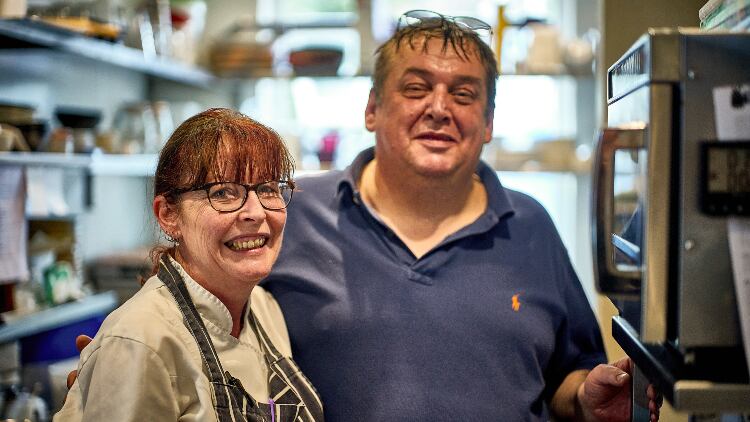
According to #ShowUpForHospitality, since the sector reopened, one in seven (14%) people have not turned up to their reservation, with one in eight (12%) people saying they are more likely to not show up than they were before the pandemic.
The report identifies a strong correlation between no-shows and age, with 18 to 34-year-olds the worst offenders when it comes to no-shows. More than a quarter (28%) of 18 to 34-year-olds have not honoured their bookings, compared to just 1% of those aged 55 or over.
This is partly explained by the fact younger adults are more frequent bookers in comparison to other age demographics, the statistics reveal. Almost three quarters (73%) of 18 to 34-year-olds say they have made a reservation since April - well above the national average of 60% and older age groups such as those aged 65 and over (52%).
There are ways operators can help mitigate no-shows. According to the report, more than half (55%) of consumers are willing to pay a no-show fee if they didn’t turn up while nearly as many (51%) would be happy to pay a deposit to secure a booking. Some 36% said they would be more likely to show up if the venue simply reminded them by phone, SMS, email or app.
Amber Staynings, chief executive of strategic sales and business development expert Bums on Seats, which is backing #ShowUpForHospitality says: “No-shows have been one of the largest issues hospitality has faced since we reopened the doors last year and we are now at a point, as an industry, where we have to take action.
“Putting in measures to minimise no-shows means more cash, accurate financial forecasting and, more importantly, a far better guest experience, which encourages loyalty and repeat business.
“Our customers should be treated as close friends or family. Treated in this way, all customers, even newly acquired ones, would consider you as a friend and phone ahead if necessary, to apologise in advance for not being able to maintain their booking commitment. There is no reason why every venue should not adopt this approach, small or large.
“It’s been amazing to see the industry and public response to this campaign; now is the time to support one another, enable our operators and educate our consumers.”
“You are the worst kind of guest, and that is ‘selfish’. I hope you have good look at yourselves.”
Trade body UKHospitality believes customers are beginning to appreciate the situation pubs are being put in and are actively trying to help the industry by ensuring they attend bookings – or let venues know if they can’t.
UKHospitality chief executive Kate Nicholls says: “No-shows have been a blight on the industry for many, many years, but with tens of thousands of hospitality businesses in such a fragile state following prolonged periods of closure and heavily restricted trading, they are currently deeply damaging to venues.
“Our pubs, bars and restaurants deserve our support and it’s encouraging that this research shows there is a growing realisation among customers of the need to honour their booking or let the venue know they can’t make it. But it also highlights the fact that no-shows still happen far too often, with younger customers particularly responsible, and that really can’t go on.
“We need a revitalised relationship between venues and their customers – and for people to be supportive and respectful of these businesses as they rebuild from the pandemic.”
Still a barrier to overcome
Sector analyst CGA claims solutions must be found as Christmas nears without comprising the element of spontaneity when choosing to dine at pubs.
CGA business unit director – hospitality operators and food, EMEA, Karl Chessell said: “Consumers are embracing reservations like never before, because they want certainty about their eating and drinking-out experiences, and bookings can be positive for operators too if they help them to plan better. But the flip side of no-shows has come into sharp focus since the pandemic; they’ve been a bugbear for years, and the sales and cost implications are especially painful now.
“It’s much easier to identify the problem than find solutions but reducing no-shows will be a big priority in the months ahead, especially as Christmas nears. Deposits can help, but there’s clearly still a barrier to acceptance among consumers, and they don’t suit all businesses. As spontaneity returns to hospitality, striking the right balance between reservations and walk-ins is going to be crucial.”
Meanwhile, hospitality technology business Zonal says no-shows coupled with low staffing and stock levels in the sector is leaving making a bad situation worse.
Zonal chief sales and marketing officer Olivia FitzGerald says: “We have launched the #ShowUpForHospitality campaign to highlight the impact no-shows have on our industry as well as to showcase how important it is to support hospitality businesses as they begin to rebuild. The knock-on effects caused by no-shows are considerable. Staffing and stock levels are left seriously compromised in addition to the lost revenue for a table that could’ve been taken up by other willing guests, and all this comes with a significant cost to hospitality businesses.
“Pubs, bars and restaurants play a vital role in our communities and it’s important we continue to support them after this challenging time. While the pandemic has prompted a new-found appreciation and understanding of hospitality among many consumers, there is still more to be done in encouraging them to always honour their booking or tell the venue in advance.”
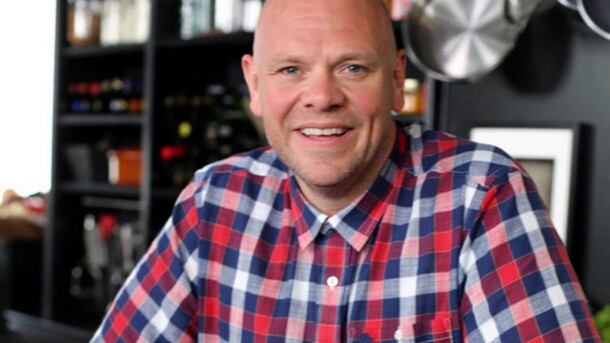
Celebrity chef Tom Kerridge, who operates the Hand & Flowers, Marlow, Buckinghamshire, previously branded those who fail to show up for bookings as “disgraceful”.
On a social media post in July, he talked about no-shows at Kerridge’s Bar & Grill in the Corinthia Hotel in central London.
He wrote: “To the 27 people that booked [Kerridge’s Bar & Grill] then failed to turn up on a Saturday night. This industry, like many others is on the verge of collapse.
“Your behaviour is disgraceful, short-sighted and downright unhelpful. All of you ‘no-shows’ in all restaurants up and down the country are adding to the issues already being faced.
“You are putting people’s jobs more at risk. We put staff levels to the number of covers booked and when you fail to turn up, it now costs us, which, in turn, will force very uncomfortable and hard decisions about staffing levels.
“You are the worst kind of guest, and that is ‘selfish’. I hope you have good look at yourselves.”
The idea of pubs asking for a deposit not only has the potential to put people off visiting, it also fails to cover the financial losses of what those customers would have spent when they fail to turn up or decide to cancel late. It also affects staff morale, causes time to be wasted along with produce earmarked for meals, and beats a sector that already has enough on its plate.
The next course is finding solutions to this age-old issue… and fast.

